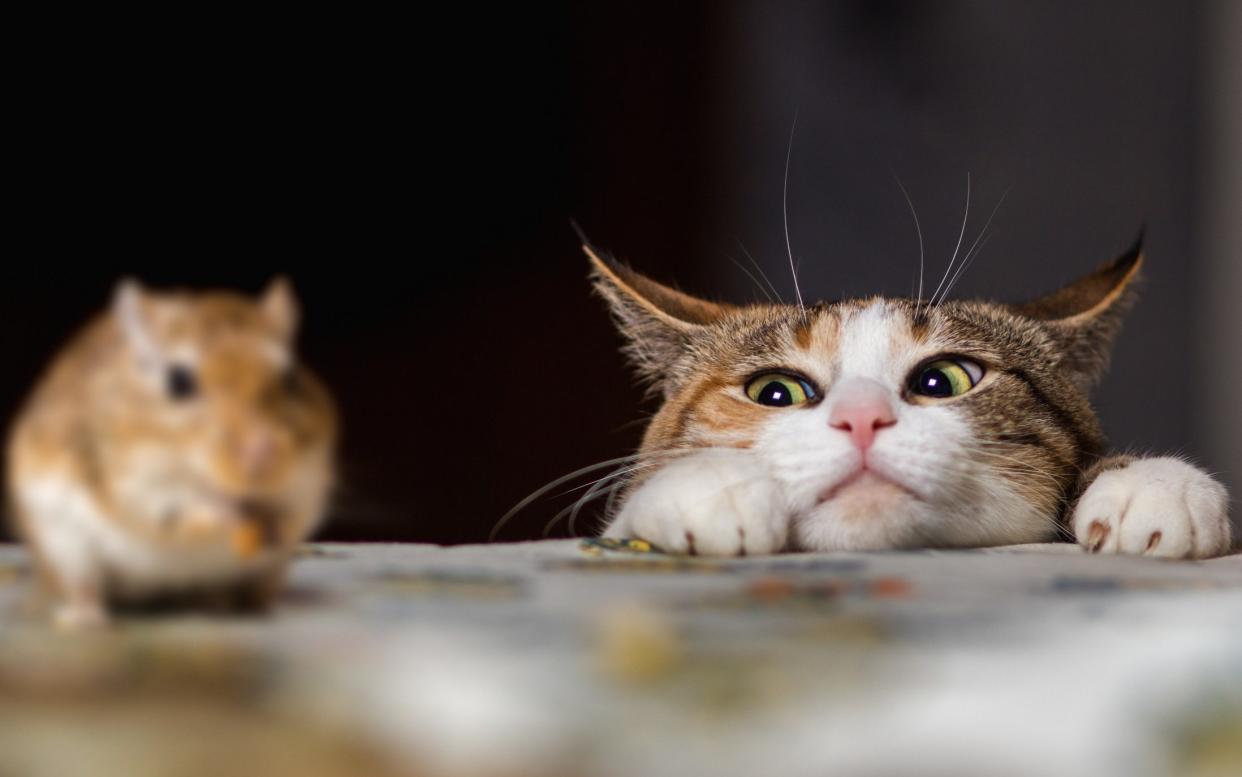Why the mouse the cat dragged in isn’t really a gift

Cat owners have long convinced themselves that the dead mouse their pet dragged in is a gift.
But scientists at the University of Lincoln have put a cat among the pigeons with new research dispelling this myth.
“It is about small-animal security,” authors Prof Dan Mills, an animal behaviour expert, and Celia Haddon explain in Being Your Cat. “Apart from bringing in prey for kittens, [cats] do not share food or give food as presents.
“The reason [cats] bring prey into the house is that this is a safe place where [they] may bring new resources to potentially play with or consume later on.”
Extroverted cats are much more likely to bring a meal into the home, Prof Mills and Ms Haddon state.
“It is actually a sign of confidence,” they write. “[Cats] bring prey to your safe place, without fear that some large animal will pounce, where [they] can relax and do what [they] want with [their] prey, which might include just ignoring it.”
Reducing hunting
Scientists have long been trying to dissuade cats from bringing their hunts home, with cats blamed for shrinking native wildlife populations around their homes.
A study published last year estimated that UK cats kill between 160 and 270 million animals annually, with birds accounting for a quarter.
Methods which could reduce hunting include feeding them a high-meat diet, ensuring they spend 10 minutes a day playing with moving objects and putting bells on collars.
Experts have urged owners to keep cats inside at dusk and night time to avoid them killing bats and other animals. A curfew has been implemented in some parts of Australia.
Dr Maren Huck, senior lecturer in Animal Behavioural Ecology at the University of Derby, told The Telegraph she has been looking at why cats bring dead animals home since 2014 when her own pet, Treacle, surprised her with a dead merlin. The falcon, the UK’s smallest bird of prey, is as big as an average cat.
Her work involved attaching cameras to cats to reveal what they get up to outside.
Cats become 'super alert' when outside
“Cats are seen as relatively lazy, especially compared to dogs. But we saw that when they were outside, they became super alert,” she said.
“Owners who have particularly active predatory cats might consider what they could do to reduce their cat’s hunting activity.
“The evidence for bells on collars has been somewhat mixed. Other options such as bibs can be effective, but these can impede the movement of cats.
“A recent study has shown that the diet of the cat could affect predation, where food that was very rich in meat, significantly reduced hunting behaviour. Similarly, owners playing regularly with their cats, for just five minutes per day, reduced the predation rate.”
While she acknowledged the importance of protecting wildlife, she warned against countries adopting other nations’ approaches without consideration.
“There are various studies that have published numbers of annual kills by cats, which often sound large, but these studies generally do not set these numbers into any context, which makes them meaningless if they are not set into the relation of total population sizes and reproductive rates of the species.”

 Yahoo News
Yahoo News 
